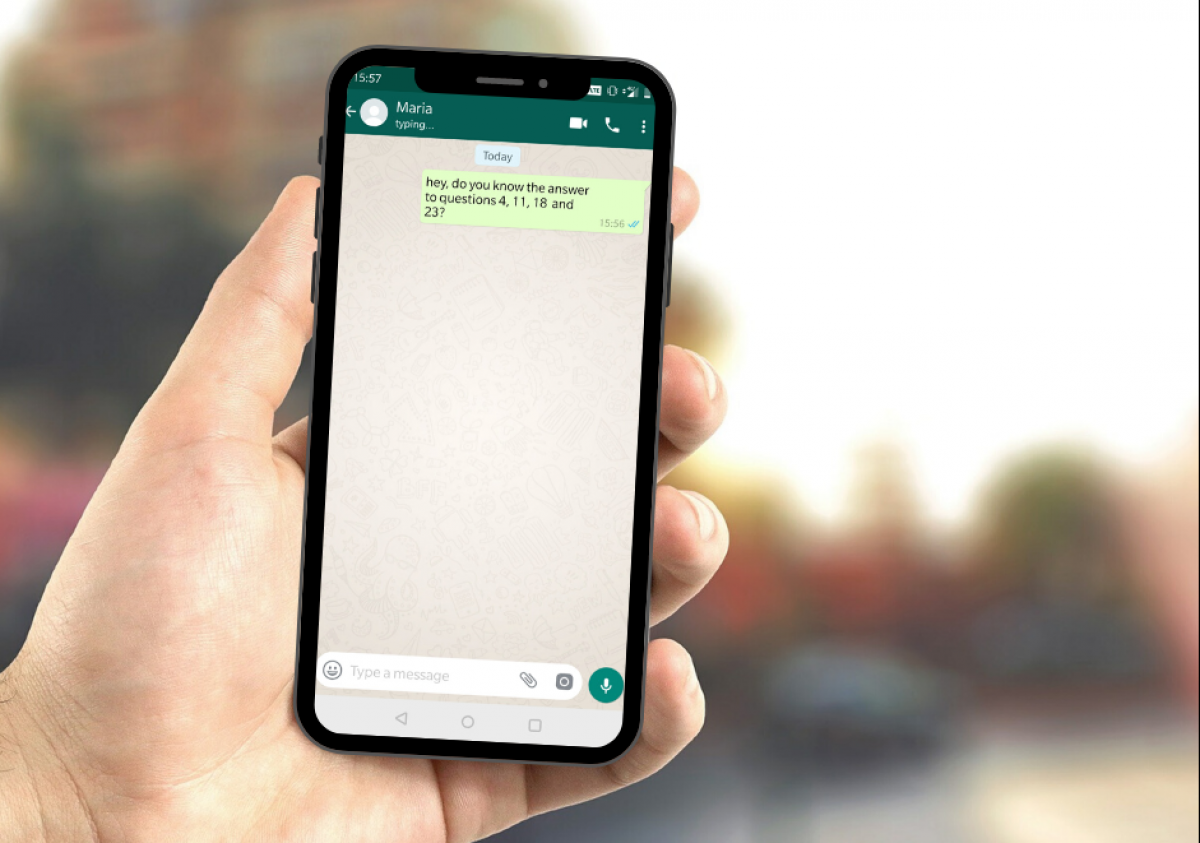Education minister Ingrid van Engelshoven claims that students have not cheated en masse since universities switched to online exams. Does this also apply to the TU Delft?
Studented used Whatsapp in most suspected fraude cases (Photo: Marjolein van der Veldt)
When the coronavirus pandemic hit, exams suddenly had to be taken online on a massive scale, and multiple institutions of higher education discovered cases of academic misconduct. Students had copy-pasted information from existing files and discussed exam questions in chatrooms or on WhatsApp.
As a result, exams at universities in Maastricht, Twente and Rotterdam were declared invalid. The VVD party asked parliamentary questions such as: are we indeed facing an increase in the number of cases of academic misconduct, as the higher education news agency HOP had written?
Minister Van Engelshoven answered that things aren’t that bad. She requested information on the matter from the umbrella organisations for higher education, who informed her that cheating during the coronavirus crisis was occurring on the same scale as before the outbreak.
The minister mentioned that a number of cases of academic misconduct during online exams had been reported, but that the institutions in question had already taken “appropriate measures”.
Cheating at TU Delft
An online survey that Delta conducted among students and staff in order to gain insight into their wellbeing led to an (anonymous) response that TU students have been cheating on a large scale. For example, students are said to have telephone contact with fellow students or even take exams in the same room.
According to Willem van Valkenburg, chairman of the exams taskforce of TU Delft, there are “cases of suspected fraud, but not on a large scale”. For example, at the Faculty of CEG five fraud reports were made in Q4, but none were made at the Faculty of Architecture and the Built Environment. For the other faculties data are not yet known.
Most fraud signals come from open book exams in which students may have collaborated with each other through Whatsapp. Van Valkenburg: “Many lecturers have assumed that students adhere to the student pledge and do not cheat.” Because it is difficult to obtain proof, the suspicions have not yet been proven.
Consequences of fraud
Van Engelshoven also wrote that institutions are learning from these experiences and adapt their testing methods accordingly.
TU Delft is also learning. To combat fraud, Van Valkenburg and his team have, for example, placed an overview of fraud prevention measures on the support website for teachers. So far the page has been consulted about 6000 times. “For the coming exam period we will advise teachers even more to take the right anti-fraud measures for their exams.”
In addition, the university also wants to appeal to the students’ sense of responsibility, said Vice-Rector Magnificus Rob Mudde in a meeting with the student council. ‘For example, by appealing to their norms and values or possibly highlighting the consequences of fraud.’
The VVD party suggested explicitly including a review of online assessments in the upcoming evaluation of remote education. The minister has decided against this, as there are already a number of nationwide working groups looking into remote assessments. The SURF IT organisation ensures that institutions can learn from each other.
Discussion
Minister Van Engelshoven believes that institutions and their examination boards are already working hard to prevent cheating. Preventive measures include the use of oral examinations and online proctoring. According to Van Valkenburg, a consequence of the fraud signals may be that next academic year teachers at TU Delft will also make more use of online proctoring. “Although we are trying to minimise this.”
According to Mudde, students have a hand in whether the university will use this form of surveillance more often. ‘If there’s little fraud, we don’t have to use online proctoring,’ he said in a meeting with the student council.
Online proctoring caused some privacy concerns this past spring. Two universities of applied sciences openly distanced themselves from the controversial proctoring software. University of Amsterdam students even started preliminary proceedings against the university – and lost.
The House of Representatives weighed in on the issue of proctoring as well. At the time, Minister van Engelshoven said that there was no need for students to make a big fuss.
HOP, Evelien Flink / Delta, Annebelle de Bruijn
Do you have a question or comment about this article?
redactie@hogeronderwijspersbureau.nl


Comments are closed.